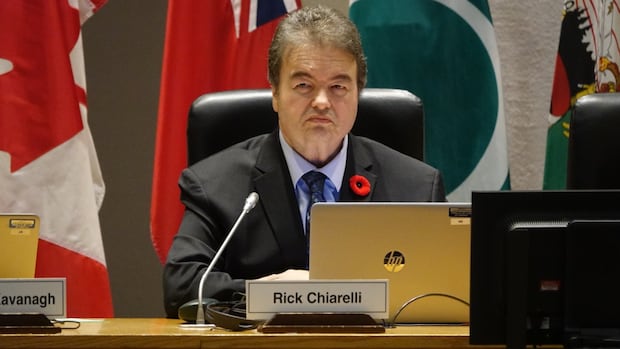In the wake of a contentious Bill 9 hearing, the atmosphere at Queen’s Park turned unexpectedly personal as Lida Chiarelli defended her husband, former Ottawa city councillor Rick Chiarelli, claiming he fell victim to “cancel culture” during his final years in office.
The public hearing, meant to address amendments to Ontario’s municipal legislation, instead spotlighted the lingering tensions from one of Ottawa’s most controversial political careers. Rick Chiarelli, who served nearly 30 years as councillor before being stripped of key powers following workplace misconduct allegations, wasn’t present—but his wife’s passionate defense resonated through the committee room.
“My husband was a victim of a cancel culture that exists in our society today,” Lida Chiarelli told committee members, her voice steady despite the charged subject matter. The former councillor’s wife argued that her husband had been denied proper due process, a claim that stood in stark contrast to the findings of Ottawa’s integrity commissioner.
That investigation, completed in 2020, concluded Chiarelli had indeed violated the city’s code of conduct through inappropriate comments and questions during job interviews. The sanctions that followed—including the suspension of pay and restriction of office resources—represented the harshest penalties available under municipal regulations at the time.
Somerset Ward Councillor Ariel Troster, who attended the hearing, expressed dismay at how the proceedings unfolded. “It was really disturbing to hear that testimony and to hear applause in the room when she was finished,” Troster recounted. The spectacle seemed particularly jarring against the backdrop of Bill 9’s stated purpose: strengthening accountability mechanisms for municipal officials.
The legislation, formally known as the Better Municipal Governance Act, proposes expanded powers for integrity commissioners, including the ability to recommend a council member’s removal from office—a measure that wasn’t available during Chiarelli’s case. The bill represents a significant shift in how municipal misconduct might be addressed in the future, potentially creating more substantial consequences for breaches of public trust.
Catherine McKenney, former councillor and mayoral candidate who served alongside Chiarelli, offered pointed criticism on social media following the hearing. “Rick Chiarelli was not a victim,” McKenney wrote. “The young women who were sexually harassed while trying to work for the city were the victims.”
For the women who came forward with allegations against Chiarelli, the day’s proceedings felt like an unwelcome reopening of wounds they’d worked hard to heal. Nancy O’Brien, who publicly shared her experience with Chiarelli in 2019, told Mediawall.news in a phone interview: “Hearing someone dismiss everything we went through as ‘cancel culture’ feels like erasure of our lived reality.”
The integrity commissioner’s report had detailed troubling patterns, including allegations that Chiarelli had asked female job applicants about going braless to events and working at strip clubs. These findings led to council voting to apply all available sanctions—a 450-day pay suspension and removal of budget resources.
What makes the Chiarelli case particularly relevant to Bill 9 discussions is how it exposed the limitations of municipal oversight mechanisms. Even with the most severe penalties applied, Chiarelli remained in office until the 2022 election, when he opted not to run again.
Minister of Municipal Affairs and Housing Paul Calandra, who chairs the committee overseeing Bill 9, maintained a neutral stance during Lida Chiarelli’s testimony. When approached for comment afterward, his office issued a statement emphasizing the government’s commitment to “ensuring municipalities have the tools they need to operate effectively and maintain public trust.”
The hearing also revealed the ongoing community divisions surrounding Chiarelli’s legacy. Several former College Ward residents attended in support of Lida Chiarelli, with some applauding after her testimony. Others, including former city staffers, shook their heads in visible disagreement.
Political science professor Elizabeth Goodyear at Carleton University suggests this split reflects broader polarization in how we process allegations of misconduct. “What some see as overdue accountability, others interpret as excessive punishment without sufficient legal process,” she explained. “Municipal governance often lacks the robust checks and balances we expect in other levels of government.”
As Bill 9 continues its journey through the legislative process, the Chiarelli controversy serves as both cautionary tale and case study. The question remains whether strengthened integrity measures will strike the right balance between protecting accusers and ensuring procedural fairness for the accused.
For Ottawa residents who lived through the years-long saga, the debate feels far from academic. “This wasn’t just political theater,” noted community advocate Jennifer Moroziuk. “Real people’s careers and well-being were affected by what happened in that office.”
As the committee adjourned for the day, the contrast couldn’t have been clearer: what was intended as forward-looking legislation repeatedly circled back to unresolved tensions from Ottawa’s political past—a reminder that policy debates often carry the weight of personal stories that resist tidy resolution.






